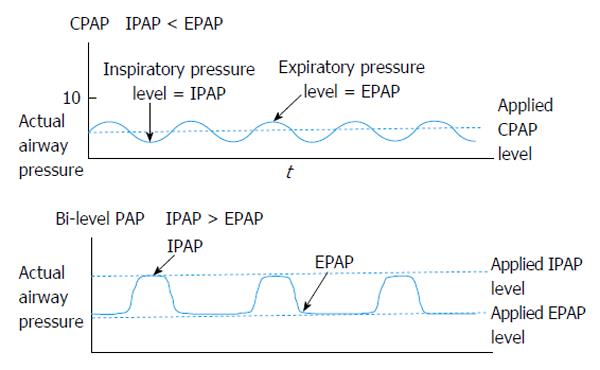Continuous positive airway pressure
Table of Contents
Table of Contents
Continuous positive airway pressure therapy, also known as CPAP therapy, is a common treatment for sleep apnea. However, there is also evidence that CPAP therapy can have a positive impact on mood disorders such as depression and anxiety.
Why CPAP Therapy and Mood Disorders Matter
Sleep apnea is a common condition that affects millions of people worldwide. It can lead to a range of health problems, including high blood pressure, stroke, and heart disease. However, many people with sleep apnea also experience depression, anxiety, and other mood disorders.
For people with both sleep apnea and mood disorders, CPAP therapy may be an effective treatment option. However, many people with sleep apnea are not aware of the potential benefits of CPAP therapy for mood disorders.
What is CPAP Therapy?
Continuous positive airway pressure therapy involves using a machine that delivers air pressure through a mask to keep the upper airway open during sleep. This helps to prevent the collapse of the airway that causes sleep apnea.
CPAP therapy is commonly used to treat sleep apnea, but it may also have benefits for people with mood disorders.
My Personal Experience with CPAP and Mood Disorders
As someone who has struggled with both sleep apnea and depression, I can speak to the benefits of CPAP therapy firsthand. After starting CPAP therapy, I noticed a significant improvement in my mood and overall well-being. I felt more rested and more able to handle the challenges of daily life.
While CPAP therapy may not be a cure for depression or other mood disorders, it can be a helpful addition to a comprehensive treatment plan.
The Science Behind CPAP Therapy and Mood Disorders
Research has shown that CPAP therapy can have a positive impact on mood disorders. For example, a study published in the Journal of Clinical Sleep Medicine found that CPAP therapy was associated with a significant reduction in symptoms of depression and anxiety in people with sleep apnea.
Another study, published in the journal Chest, found that CPAP therapy was associated with improvements in cognitive function in people with sleep apnea and cognitive impairment.
How Does CPAP Therapy Improve Mood?
The exact mechanisms by which CPAP therapy improves mood are not yet fully understood. However, it is thought that CPAP therapy may improve mood by improving sleep quality and reducing daytime sleepiness.
CPAP therapy may also help to improve the levels of oxygen and carbon dioxide in the blood, which can have a positive impact on mood.
Other Benefits of CPAP Therapy
In addition to its potential benefits for mood disorders, CPAP therapy also has other health benefits. For example, it can help to reduce the risk of heart disease, stroke, and other cardiovascular problems. It can also improve energy levels, concentration, and overall quality of life.
Question and Answer
Q: Can CPAP therapy be used as a standalone treatment for mood disorders?
A: CPAP therapy is not a standalone treatment for mood disorders. However, it can be an important part of a comprehensive treatment plan.
Q: Is CPAP therapy covered by insurance?
A: CPAP therapy is typically covered by health insurance, although coverage may vary depending on the specific plan.
Q: How long does it take to see the benefits of CPAP therapy on mood?
A: The benefits of CPAP therapy on mood may take several weeks or even months to become apparent. However, many people report improvements in their mood and overall well-being within a few weeks of starting CPAP therapy.
Q: Are there any side effects or risks associated with CPAP therapy?
A: Like all medical treatments, CPAP therapy does carry some risks. However, serious side effects and complications are rare. Some people may experience discomfort or skin irritation from the mask, while others may find it difficult to adjust to sleeping with the device.
Conclusion of CPAP Therapy and Mood Disorders
CPAP therapy is a common treatment for sleep apnea that may also have benefits for mood disorders. While more research is needed to fully understand the mechanisms by which CPAP therapy improves mood, there is growing evidence that it can be an effective treatment option. If you have sleep apnea and are also experiencing mood disorders, consider talking to your healthcare provider about whether CPAP therapy may be right for you.
Gallery
Continuous Positive Airway Pressure | Treating Sleep Apnea - YouTube

Photo Credit by: bing.com / airway positive pressure continuous
Continuous Positive Airway Pressure Therapy | Nursing Information

Photo Credit by: bing.com / pressure continuous positive airway therapy
Mechanism Of Action Of Continuous Positive Airway Pressure Therapy IV

Photo Credit by: bing.com / airway pressure positive continuous therapy iv
Positive Airway Pressure Therapy For Heart Failure

Photo Credit by: bing.com / pressure airway positive continuous bi level therapy 1175 wjc heart failure v6 i11
Different Types Of Positive Airway Pressure Devices

Photo Credit by: bing.com / pressure positive airway continuous cpap devices types machine breathing market bipap different



